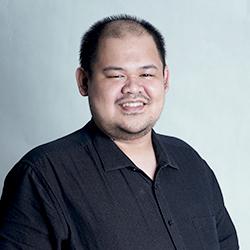
PhD (2018)
Peter is an Associate Professor at the School of Statistics, University of the Philippines (UP) Diliman. He holds a Bachelor of Science (Statistics) and Master of Science (Statistics) from UP Diliman and a PhD from The Australian National University.
His research interests are in the fields of forecasting analytics and econometrics, mentoring students in the postgraduate statistics programs at UP Diliman, and writing research reports and articles in the field.
Peter also pursues interdisciplinary work as a member of the UP Resilience Institute, which conducts cutting-edge research in Philippine disaster risk reduction and management. He engages in a range of applications in statistics on volcanology, climatology, resource management, and epidemiology.
Peter's career advice for CBE HDR students:
-
Why did you choose to work in academia rather than in industry?
I chose academia, particularly UP Diliman, as it is both a research and a public service-oriented university. It supports academic freedom and the drive to deliver quality scientific analysis as information to enrich the Philippines. -
What qualities is your university looking for when hiring new PhD graduates in your discipline?
The university searches for individuals with PhDs who possess the drive to mentor and advise students through teaching and research, an independent curiosity in research direction, and a passion for public service. -
Tell us about a challenge you faced at work, and how you overcame it.
Mental health has always been difficult for me, and my mentees and students, to manage. I have addressed mental health concerns by applying lessons I learned from Australia in my current work environment and when mentoring. The compassion I experienced when managing my mental health in Australia is what I have passed on to students and mentees. -
Can you share three of your career lessons with current HDR students?
- When doing research, keep on reading and always be curious. I have always read works from long ago and at the cutting-edge of recent developments. It has helped me devise research directions by combining and modifying approaches.
- Life is not all about academia. Pursue curiosities outside the rigor of work that you like doing. It takes the load off from being too rigid and helps maintain work-life balance.
- Be compassionate and emphatic when interacting with students and mentees. Understand their situation and give advice that both motivates them and helps them cope with difficulties.
